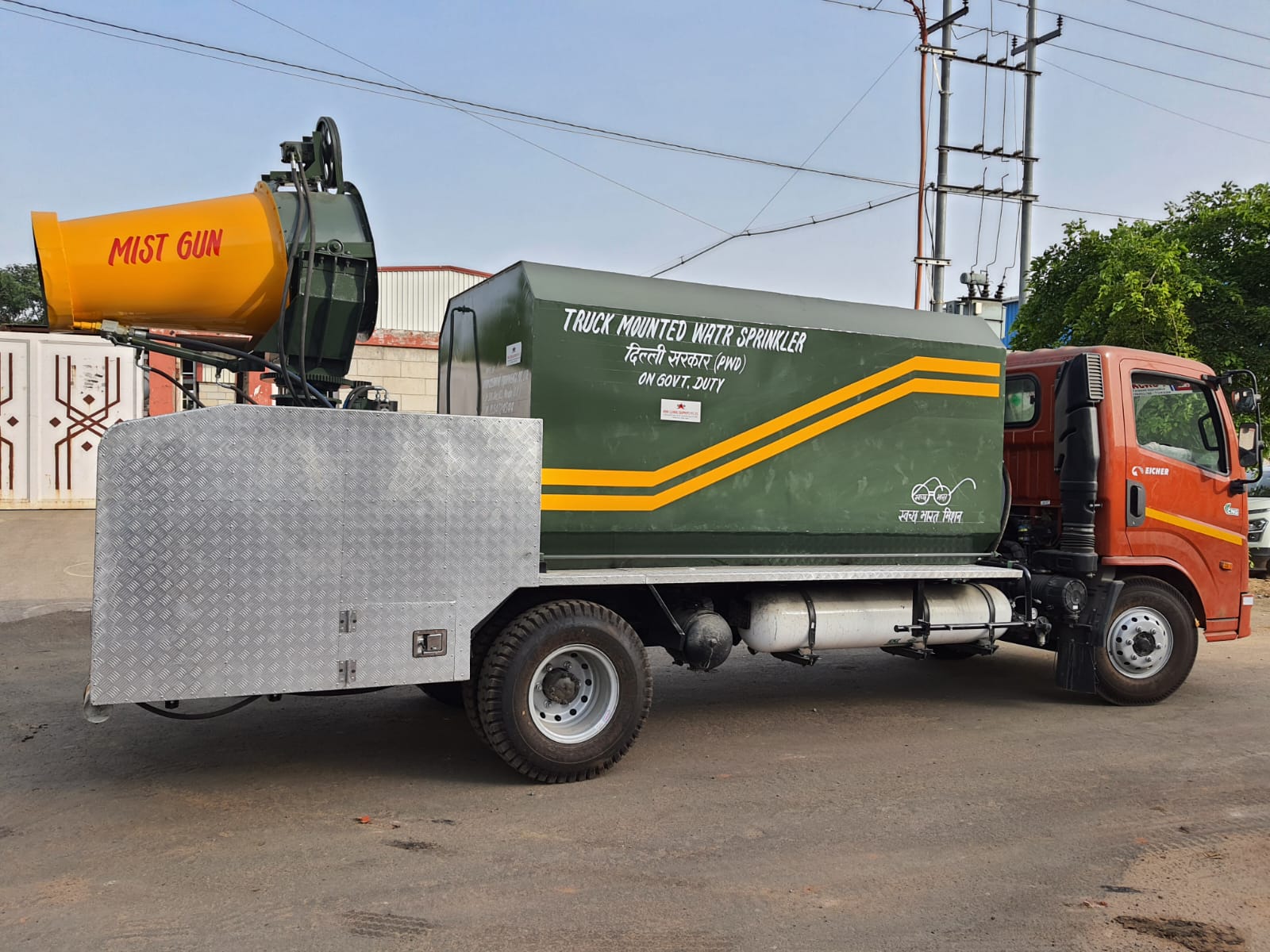Water Sprinkler Manufacturer In Noida
Water Sprinkler Manufacturer In Noida

A water sprinkler, also known as a system or irrigation sprinkler, is a device that distributes uniformly over a certain area, generally to irrigate plants, lawns, or agricultural fields. Sprinklers are commonly utilize to efficiently transport water for irrigation purposes in residential, commercial, and agricultural contexts.
What Are Water Sprinklers Used For?
Here are some of the most important components and characteristics of a conventional truck mounted water sprinkler ludhiana system:
Sprinkler heads: These are the mechanisms that distribute water. Sprinkler heads come in a variety of shapes and mechanics, such as revolving or stationary heads. Pop-up or fixed heads, and spray patterns (such as complete circle, half circle, or customizable patterns). The type of sprinkler head use is determine by the area to be water and the require coverage.
Water supply: The water for the sprinkler system comes from a supply, such as a municipal water line, well, or reservoir. Water is often supplier to the system via a network of pipelines and valves.
A control system allows the sprinkler system to be operate either automatically or manually. It has features like timers, controls, and sensors that govern when and how long the sprinklers run. Weather-based sensors in advanced systems may change the watering schedule based on rainfall or soil moisture levels.
Pipes and valves: The sprinkler system is comprise of an underground or aboveground network of pipes that deliver from the water supply to the sprinkler heads. Water flow is control by valves, which allow different zones or portions of the irrigation system to be activate or deactivate as need.
What Is The Most Effective Type Of Water Sprinkler?
A backflow prevention device is often install to prevent tainted water from flowing back into the main water supply. This protects the water system’s safety and integrity.
Sprinkler systems may be built to cover tiny residential gardens as well as enormous agricultural fields. Sprinkler head architecture and spacing, as well as water pressure and flow rate. Should be carefully design to provide equal distribution and effective water utilisation.
Regular truck mounted water sprinkler chandigarh system maintenance and inspection are require to maintain optimal operation and to resolve any concerns such as clogged nozzles, leaks, or broken components.
Water sprinklers provide a number of advantages, including effective water consumption, ease, and the potential to automate the watering process. They can aid in the promotion of healthy plant development, the maintenance of lush lawns. And the support of agricultural output by providing water precisely where and when it is require.


Leave a Reply